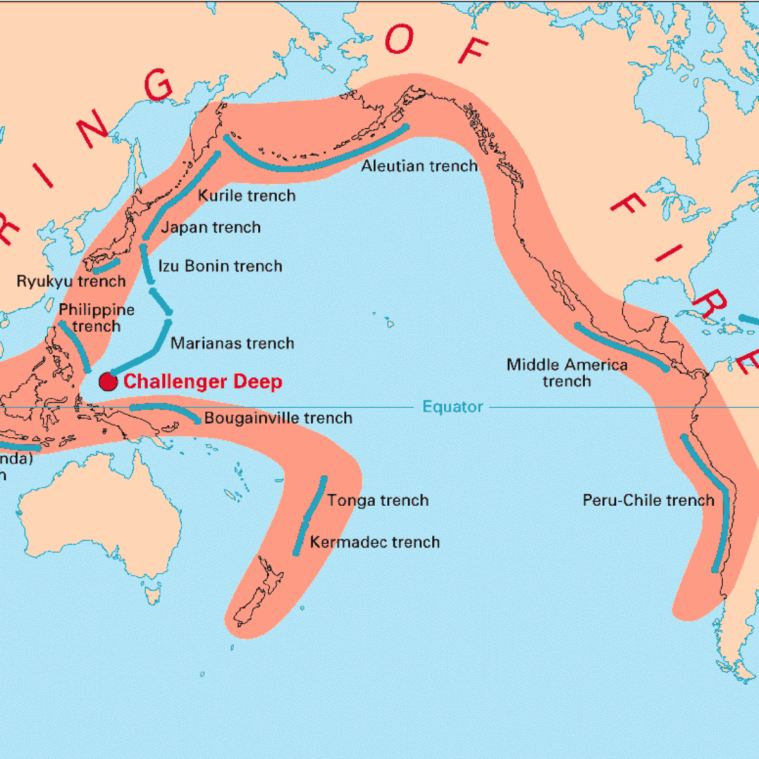What is the Pacific Ring of Fire?
Context
-
The Hunga Tonga-Hunga Ha’apai volcano erupted over the weekend, sending ash and smoke thousands of feet into the air.
-
The volcano, situated on an uninhabited island, became active in 2009. It lies along the Pacific Ring of fire, and is just over 60 kilometres from the island nation of Tonga.
About Pacific Ring of fire
- The Pacific ‘Ring of Fire’ or Pacific rim, or the Circum-Pacific Belt, is an area along the Pacific Ocean that is characterised by active volcanoes and frequent earthquakes.
- It is home to about 75 per cent of the world’s volcanoes – more than 450 volcanoes. Also, about 90 per cent of the world’s earthquakes occur here.
- Its length is over 40,000 kilometres and traces from New Zealand clockwise in an almost circular arc covering Tonga, Kermadec Islands, Indonesia, moving up to the Philippines, Japan, and stretching eastward to the Aleutian Islands, then southward along the western coast of North America and South America.

- The area is along several tectonic plates including the Pacific plate, Philippine Plate, Juan de Fuca plate, Cocos plate, Nazca plate, and North American plate.
- The movement of these plates or tectonic activity makes the area witness abundant earthquakes and tsunamis every year.
- Along much of the Ring of Fire, tectonic plates move towards each other creating subduction zones. One plate gets pushed down or is subducted by the other plate. This is a very slow process – a movement of just one or two inches per year. As this subduction happens, rocks melt, become magma and move to Earth’s surface and cause volcanic activity.
- In the case of Tonga, the Pacific Plate was pushed down below the Indo-Australian Plate and Tonga plate, causing the molten rock to rise above and form the chain of volcanoes.
- Subduction zones are also where most of the violent earthquakes on the planet occur. The December 26, 2004 earthquake occurred along the subduction zone where the Indian Plate was subducted beneath the Burma plate.
Source: IE
Visit Abhiyan PEDIA (One of the Most Followed / Recommended) for UPSC Revisions: Click Here
IAS Abhiyan is now on Telegram: Click on the Below link to Join our Channels to stay Updated
IAS Abhiyan Official: Click Here to Join
For UPSC Mains Value Edition (Facts, Quotes, Best Practices, Case Studies): Click Here to Join
